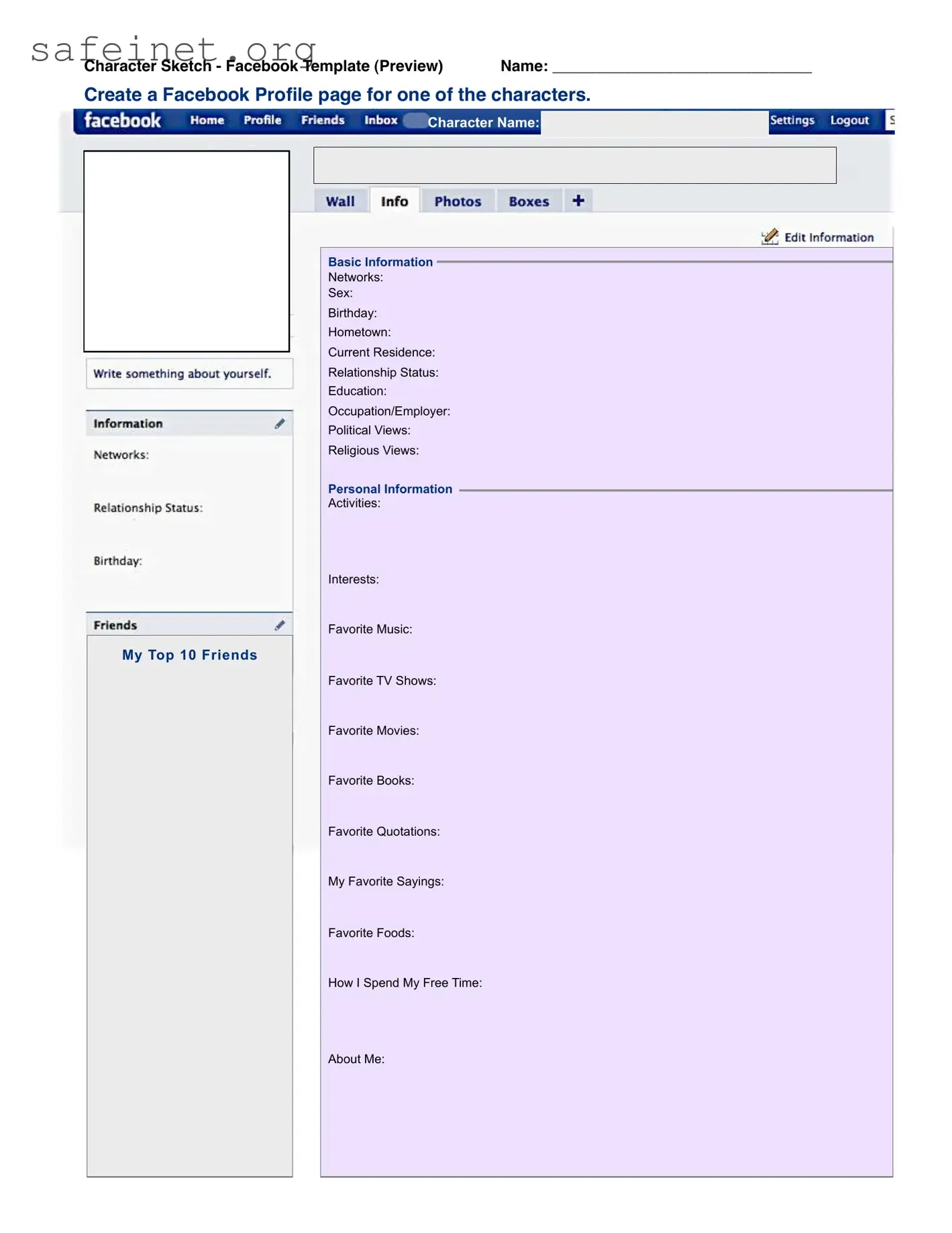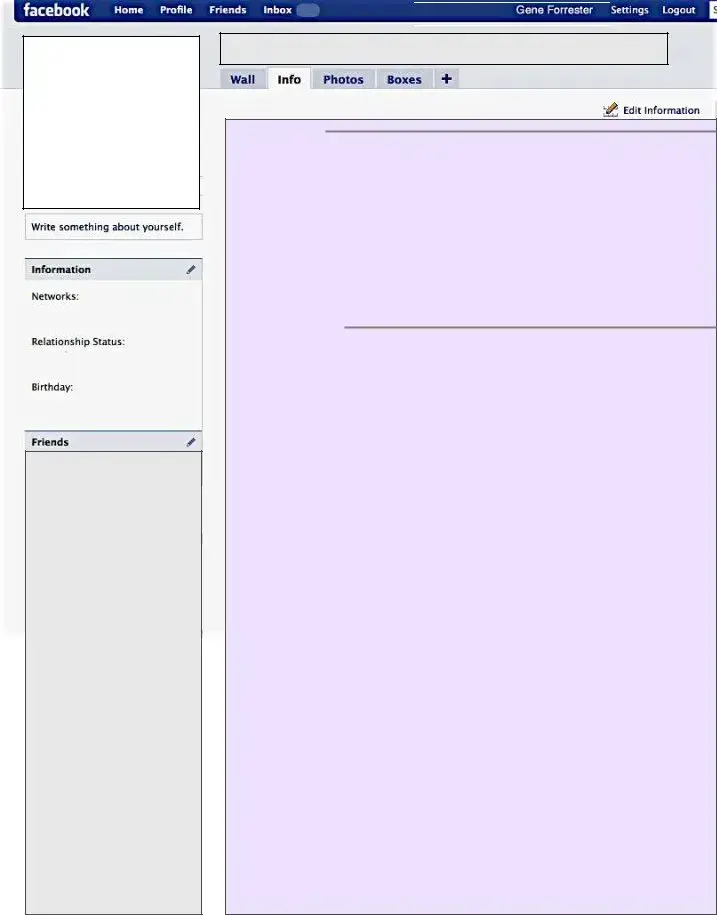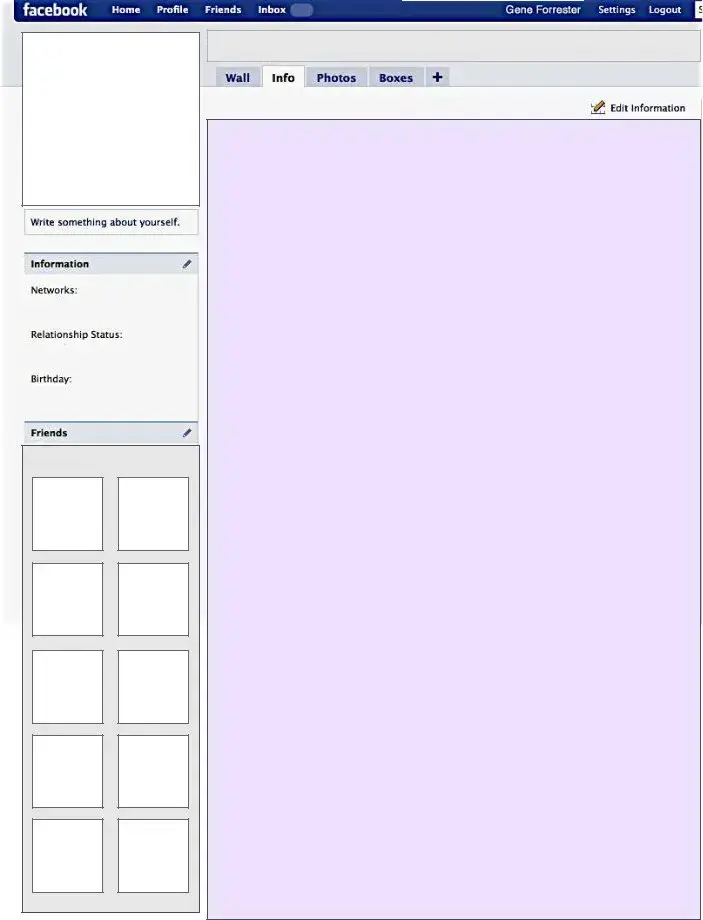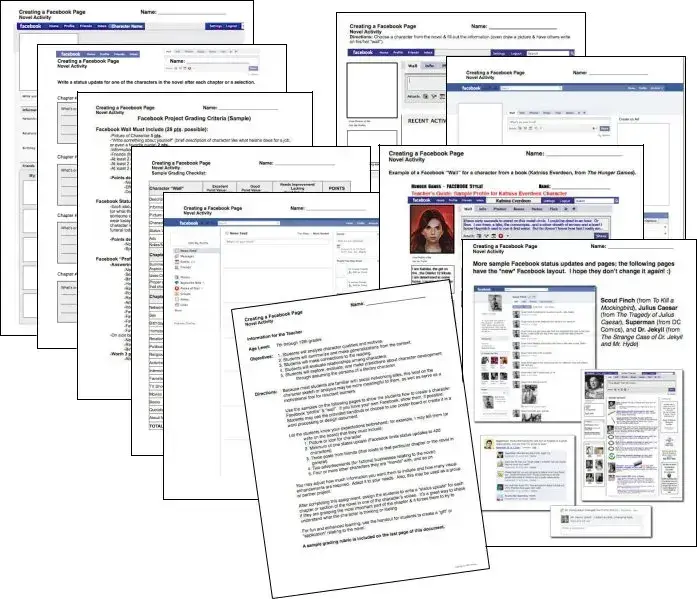BASIC INFORMATION
Networks (City/School): ____________________________________________________________
Sex: _______ Birthday: ____________________________________________________________
Hometown: ______________________________________________________________________
Current Residence: ________________________________________________________________
Relationship Status: _______________________________________________________________
Education: ______________________________________________________________________
Occupation/Employer: _____________________________________________________________
Political Views: ___________________________________________________________________
Religious Views: __________________________________________________________________
PERSONAL INFORMATION
Activities: ________________________________________________________________________
________________________________________________________________________________
________________________________________________________________________________
Interests: ________________________________________________________________________
________________________________________________________________________________
Favorite Music: ___________________________________________________________________
________________________________________________________________________________
Favorite TV Shows: ________________________________________________________________
________________________________________________________________________________
Favorite Movies: __________________________________________________________________
________________________________________________________________________________
Favorite Books: ___________________________________________________________________
________________________________________________________________________________
Favorite Quotations: _______________________________________________________________
________________________________________________________________________________
My Favorite Sayings: ______________________________________________________________
________________________________________________________________________________
Favorite Foods: ___________________________________________________________________
________________________________________________________________________________
How I Spend My Free Time: _________________________________________________________
________________________________________________________________________________
About Me: _______________________________________________________________________
________________________________________________________________________________








